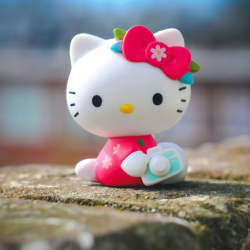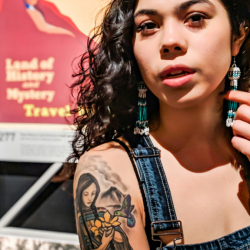When it comes to art, there is a question about the extent to which someone’s character and behaviour influences our appreciation of their music, paintings or films.
Given we know about them now, can you still listen to Michael Jackson or R Kelly? What about Jimmy Page, whose favourite groupie was fourteen years old? And if you do have a problem with anything of that nature, where do you draw the line?
Bill Burr has an interesting routine where he suggests we’re hypocrites for condemning Sean Connery for saying, “Sometimes there are women who take it to the wire. That’s what they’re looking for, the ultimate confrontation—they want a smack.” Sure, that’s not exactly endearing, but Bill wonders why there’s practically no condemnation for Coco Chanel, who had relationships with Nazi officers, and spied for them?
Whose actions are worse? And if your answer is Coco Chanel, does it in any way impact your inclination to buy Chanel clothes or perfume?
Human beings are entirely fallible
Very few of us have behaved perfectly enough to be able to judge others without hypocrisy, but art is inextricably intertwined with its creators, so you have to decide whether or not to let the artist infect the art.
As an example, I have always loved Van Morrison’s Astral Weeks. It feels soulful, heartfelt and deeply human. So I started reading a biography of Mr. Morrison, hoping that it would give me a better understanding of where those songs came from.
Imagine my surprise when I discovered that he was a rude, disloyal, mean person who once gave his girlfriend a black eye. Did that affect my enjoyment of the music? A little. I think we accept art as a genuine expression of the voice of its creator, and if Van is capable of hitting women, how could he mean those expressions of love?
Well, he was probably nice most of the time (two women liked him enough to marry him), but he occasionally became angry, possibly while drunk, and did things that were inconsistent with the lyrics of his songs. Is it fair of me to condemn him for that when I have also been rude to people while drunk (no black eyes, though)?
It’s also possible that, like the grit in the oyster that makes the pearl, some artists need the rough to create the smooth. I’m not saying they behave badly on purpose for the sake of writing their next number one, but the lighter side only exists in contrast to the dark. Disappointments, break ups and losses can make you appreciate what you had originally, and can heighten the emotions they inspired.
Finally, in this current era of democratised reaction via social media, people seem quicker to judge and condemn what they see as unacceptable behaviour, including comments from decades earlier, possibly in a time where such viewpoints were more acceptable.
Is that fair?
Well, the other point about art and acceptability is that artists have no control over the reaction to their work. Look at the scandal that greeted Beyoncé and Lizzo’s widely condemned uses of the word ‘spaz’ in recent songs. They are both at the cutting edge of cultural awareness, yet both missed this faux pas, as did their teams. Now that they’ve apologised, and rerecorded the songs, their art has now changed to suit the standards of their audiences.
That shows that context is critical, our expectations of the artist make a big difference to how we view their art, and the extent to which someone is condemned for their behaviour is surprisingly unpredictable.
That means that people can become rogues without doing anything. They can even apologise for the past, but usually to no avail. The internet never forgets, so be very, very careful what you tweet, especially if you want to host the Oscars in 2035.
Featured image: Hector Bermudez / Unsplash































